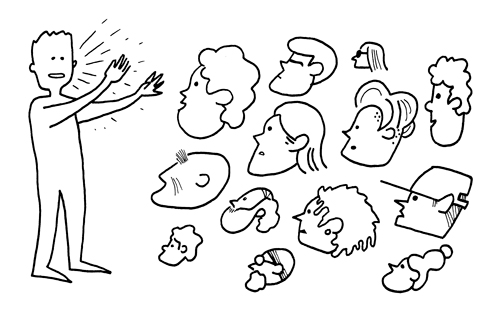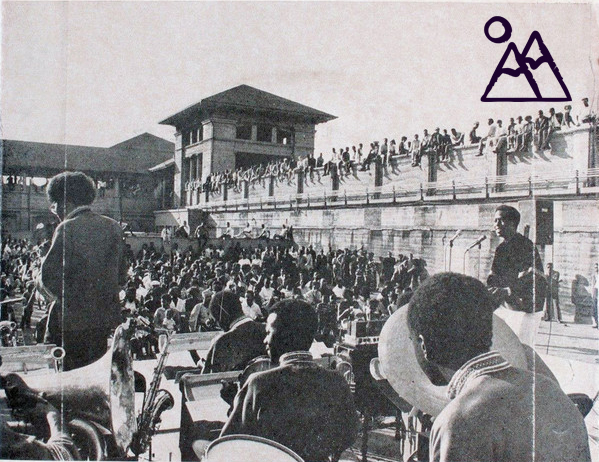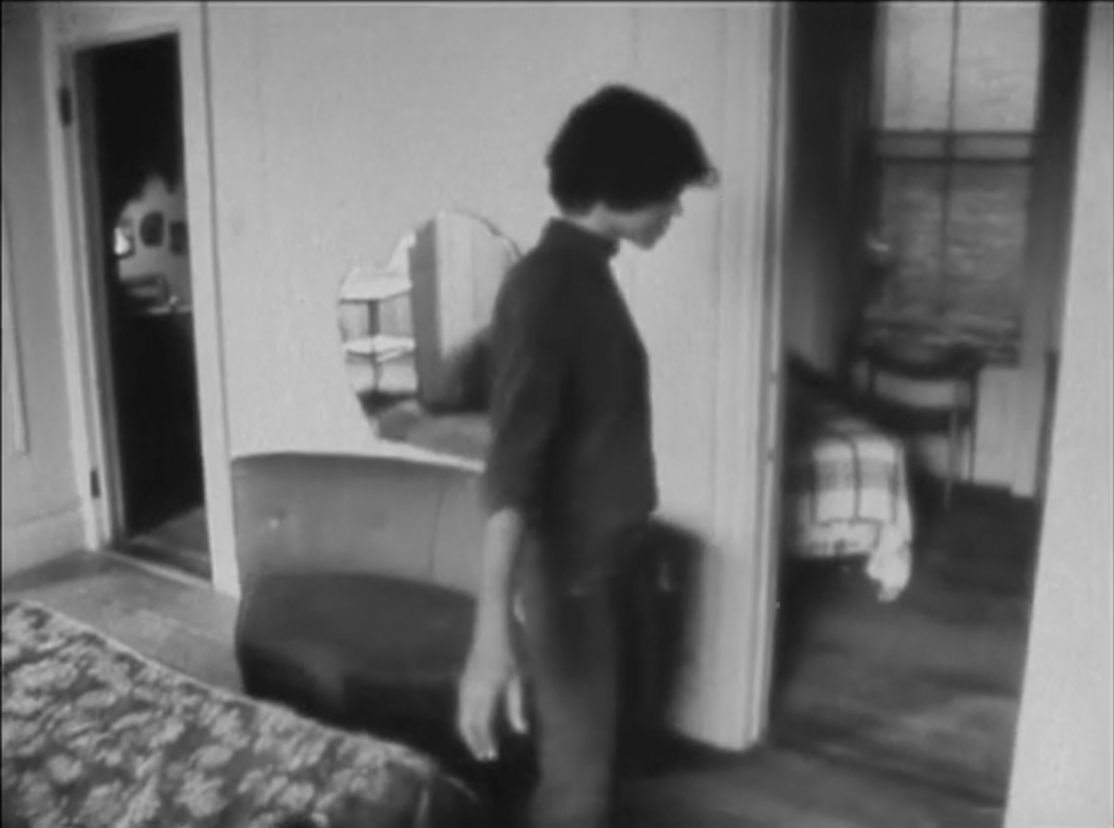
Notebook
Sat, Sep. 25, 2021 ⁄ 5:30–8:00pm
An Introduction to: Reconstruction – Area – Memory
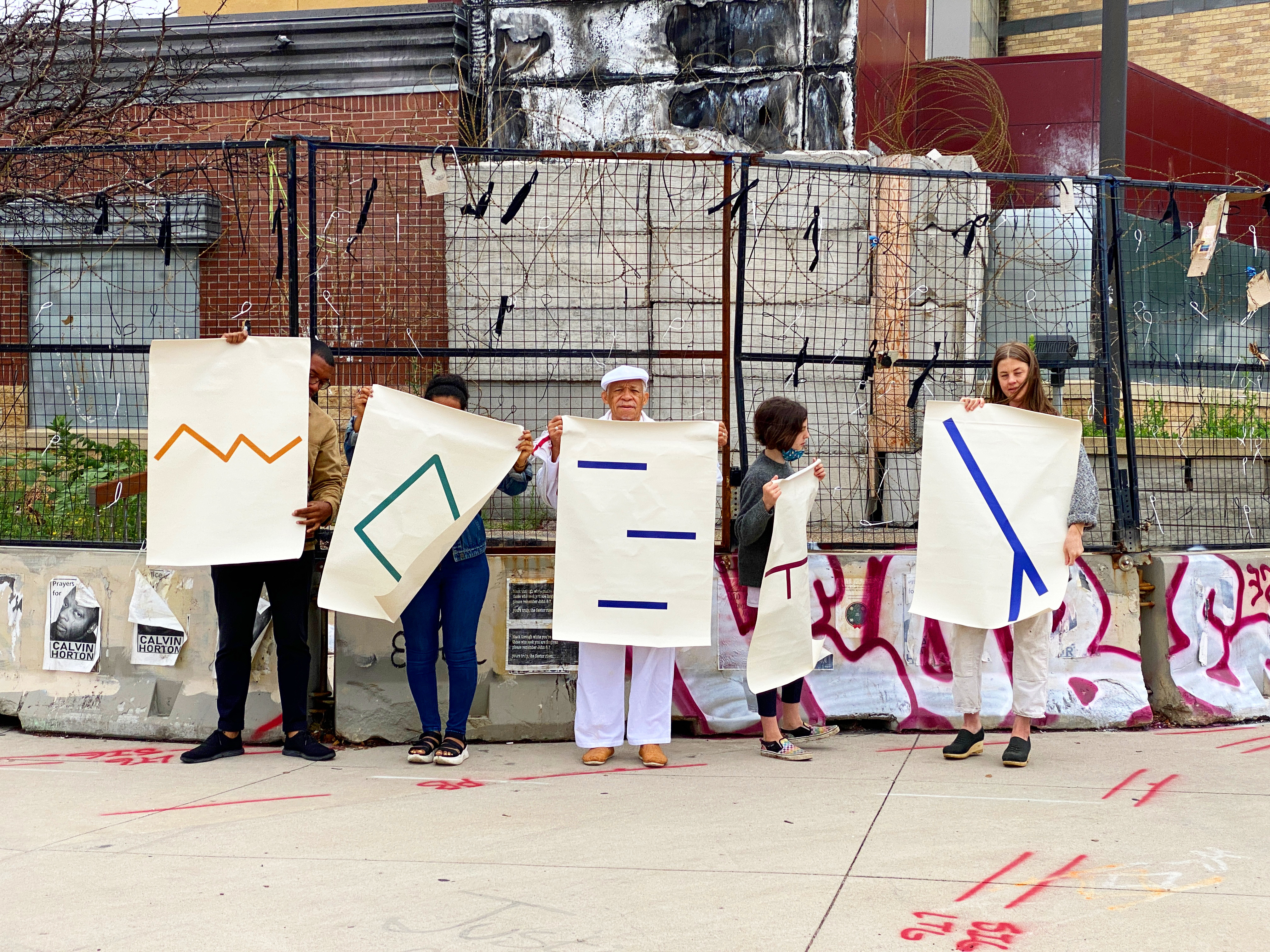
Join us at our cargo-container studio, the AMMU (Autonomous Mobile Media Unit), in the courtyard of 3032 Minnehaha Ave at 5:30pm this Saturday, Sept. 25th for the launch of our newest social tool, R-A-M: Reconstruction-Area – Memory.
R-A-M is a toolkit for recognizing others committed to constructing neighborhoods of care so that people may engage in conversations on street corners or host community forums to rebuild their neighborhoods, in our case, the 9th Ward enclaves of Powderhorn, Central, East Phillips, and Near Bryant. We’re gathering as creative folks, artists, organizers, and local troublemakers to experiment and collaboratively imagine with our neighbors to plan a different future for East Lake Street, one where a multitude of voices and visions lead.
East Lake Street is being rebuilt in ways that will continue to push out our neighbors, local businesses, and the communities we’ve formed here. Political Representatives, Property Developers, and other PIGs (Private Interest Groups) are hoarding the power to decide on what the future of our neighborhoods and city systems will be rather than creating forums and processes for us all to collectively decide through cooperation, care, and creativity. Our formation, Confluence, is an anarchic Community Design Studio for people to come together and redevelop Minneapolis’ 9th Ward from the grassroots. R-A-M, along with the AMMU, and other mechanisms in the works, are simple, open sourced tools for recognition and cooperative creation. They are free and available for all to use as they see fit.
We’re reaching out to invite you to be a co-inventor of tools that amplify our power as the people who give life to East Lake Street and the surrounding neighborhoods so that we might reimagine and rebuild this place we call home.
Please join us at the AMMU (in the courtyard adjacent to the 3rd Precinct at 3032 Minnehaha Ave.) at 5:30pm this Saturday, Sept. 25th. Duaba, Sam, and Vic will give a brief overview of R-A-M, it’s design and use. From there we’ll test out the tool with your help.
Snacks and good cheer on site!
Sat, Aug. 28, 2021 ⁄ 1:30–3:00pm
Naloxone Training and Care Network Introduction
Like much of the country in full, our neighborhood in particular has been deeply affected by the growing opioid crisis. Many of our neighbors, to varying degrees, need an open door to care, some more acutely than others. As our neighborhood asks vital questions of itself in the wake of the 2020 Uprising, and we collectively formulate shared agreements regarding what “safety for all” means moving forward, it is urgently important that we consider health and safety as synonymous.
If you are interested in joining a growing, organic network that’s aim is to provide access to tools for those experiencing an opioid overdose join Confluence Studio and a coalition of addiction and harm reduction groups on Saturday, August 28th for a Naloxone training workshop and info session.
A representative from Steve Rummler Hope Network will be present to provide training in how to recognize the signs of a person at risk of overdosing from opioid in-take and how to administer both Intramuscular (IM) and Nasal Naloxone as a life saving measure. As well, free IM and Narcan kits will be made available for those willing to carry and administer aid if ever the need arrives. Furthermore, we will take this time to discuss plans towards cultivating and maintaining an organic network of care for the Lake St. Corridor, a “design system as entryway” so that training in the administration of NARCAN and its availability is as commonplace as CPR training or a defibrillator kit for those in cardiac arrest.
An amazing day hosting Marc Fischer for the first pop-up exhibit at the AMMU of two recent publications: Police Scanner and Legal Concealers. On view for at least another month…
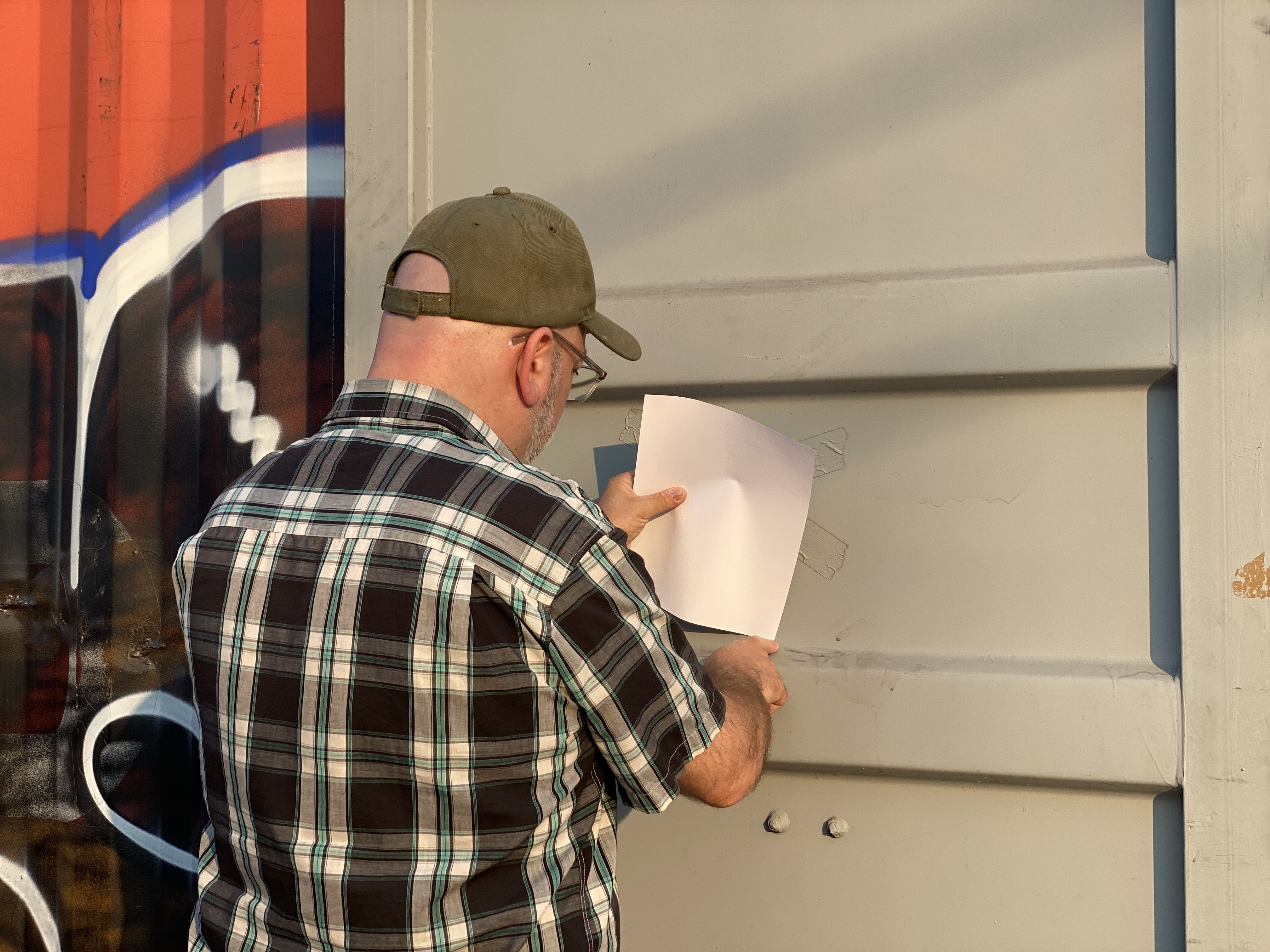
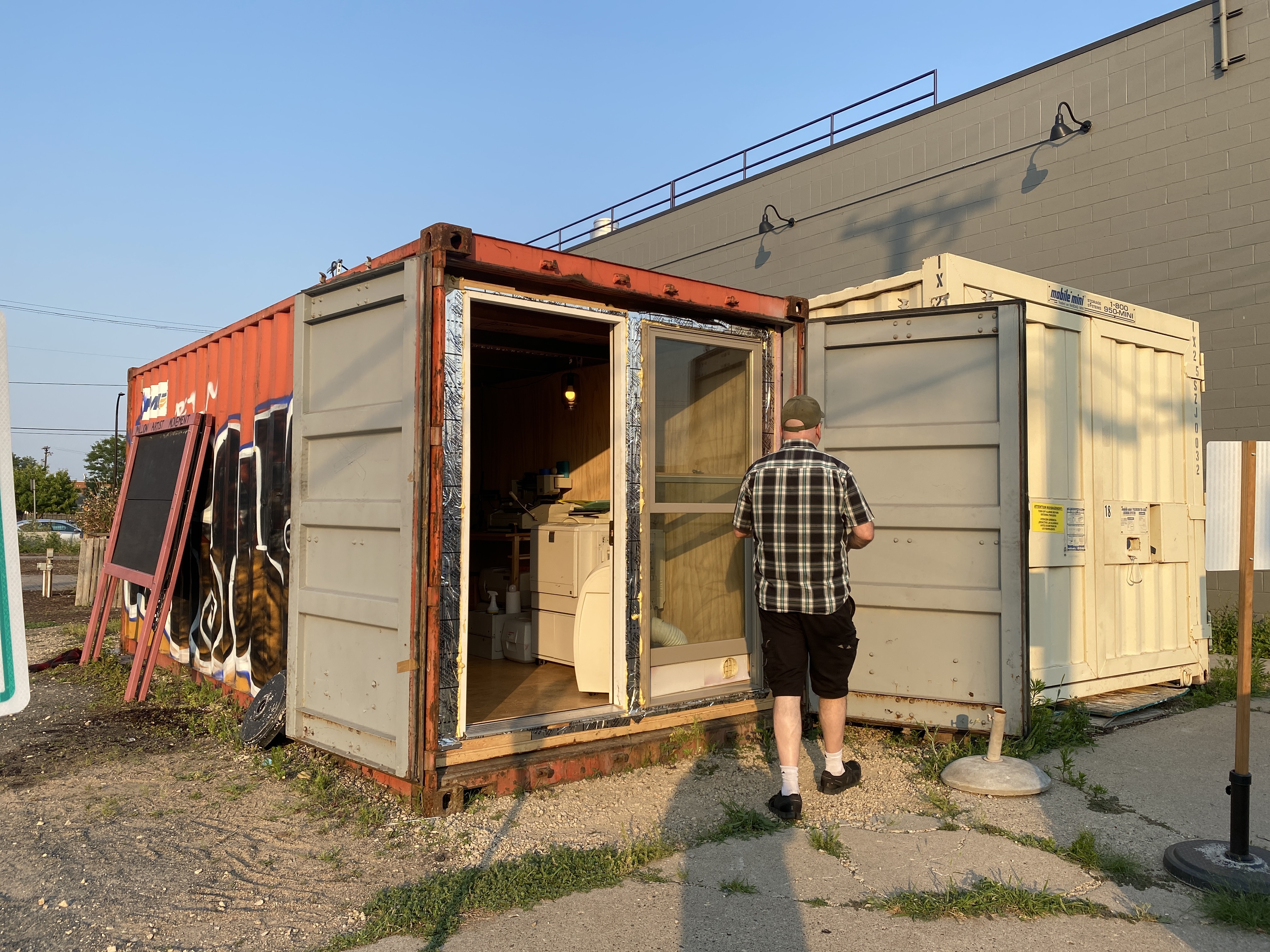
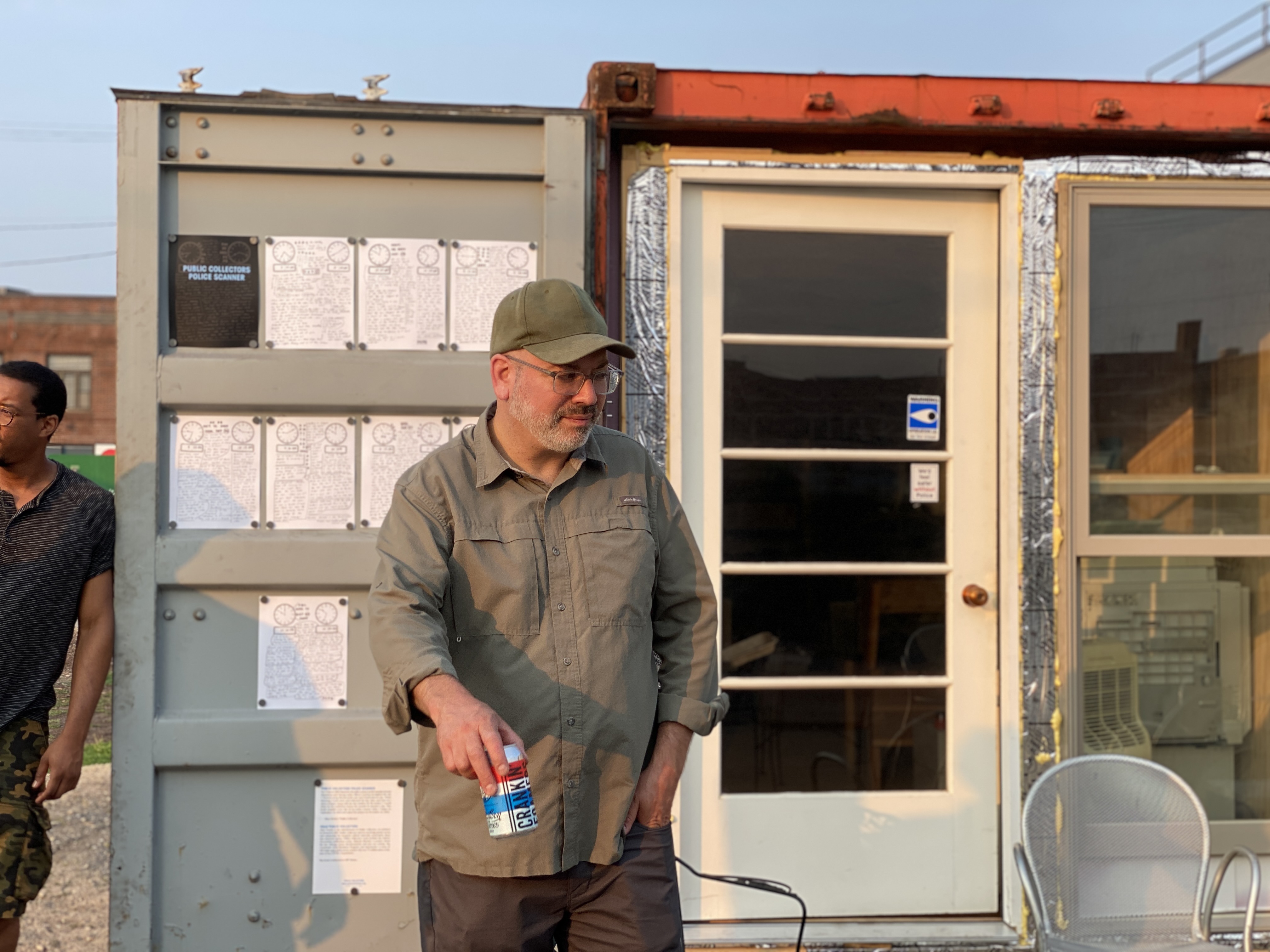
Marc, Laura Baldwin, and Sam talked about the publications and the differences between navigating and observing the court system on a daily basis.
After a short break we jumped into a conversation between Sam and Kenneth Bailey of Boston’s Design Studio for Social Intervention…
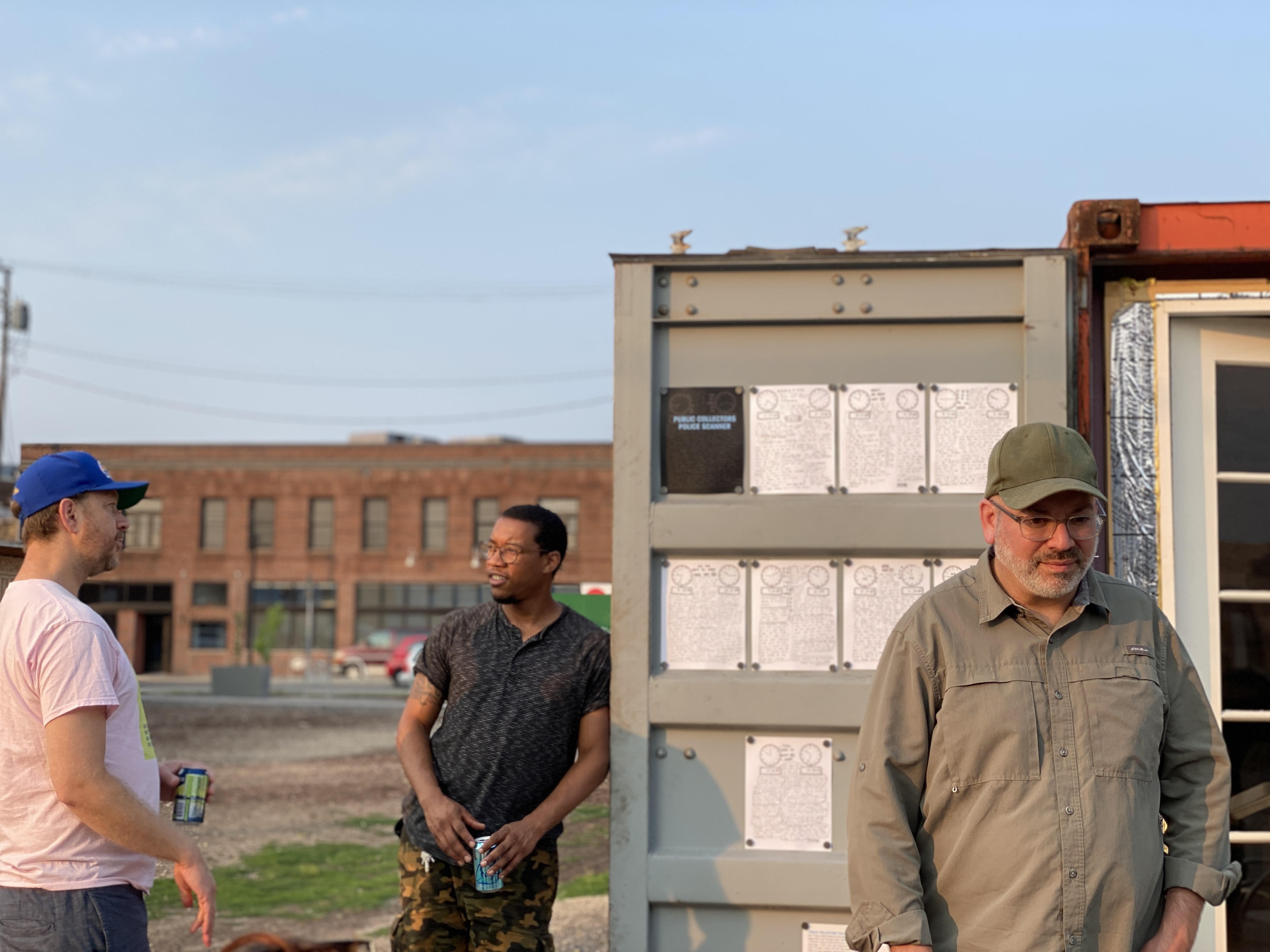
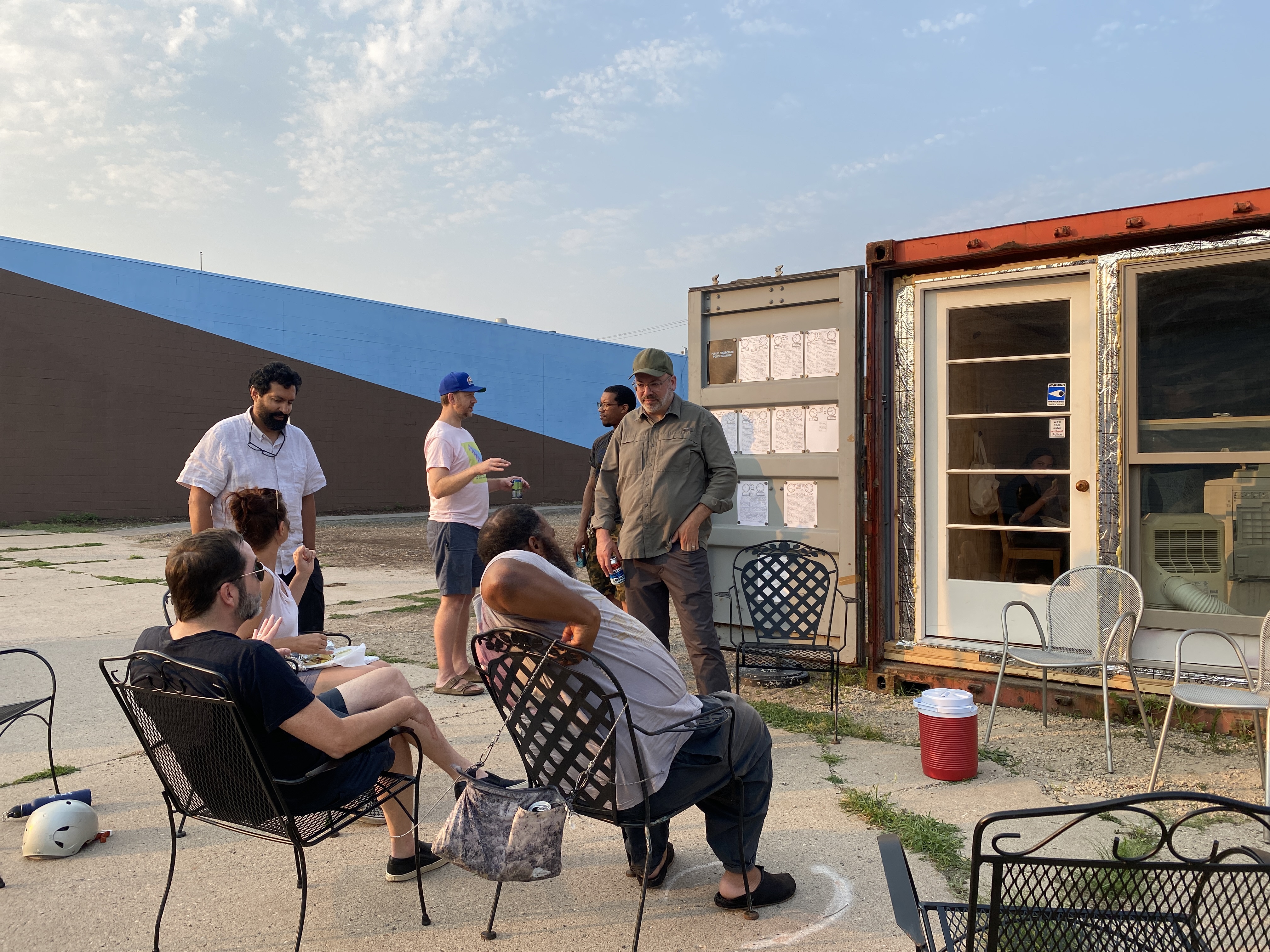
Sam and Kenny’s conversation could have gone on and on, focusing on the poetics of social life and power, access to tools for grassroots transformation and so much more.
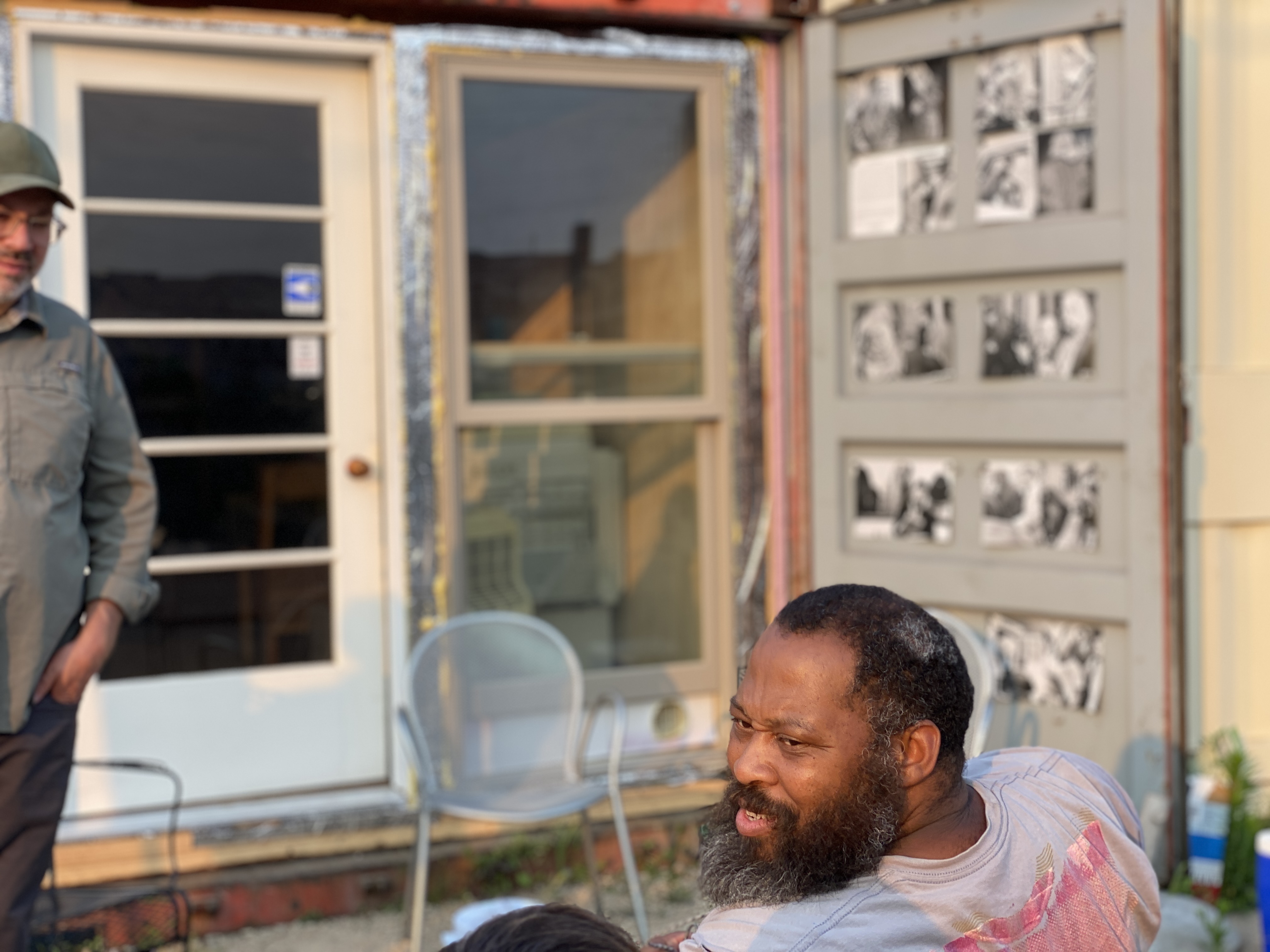
We’re excited to begin to transcribe these conversations and add them to a growing list of dialogues soon to be printed and distributed throughout the neighborhood.
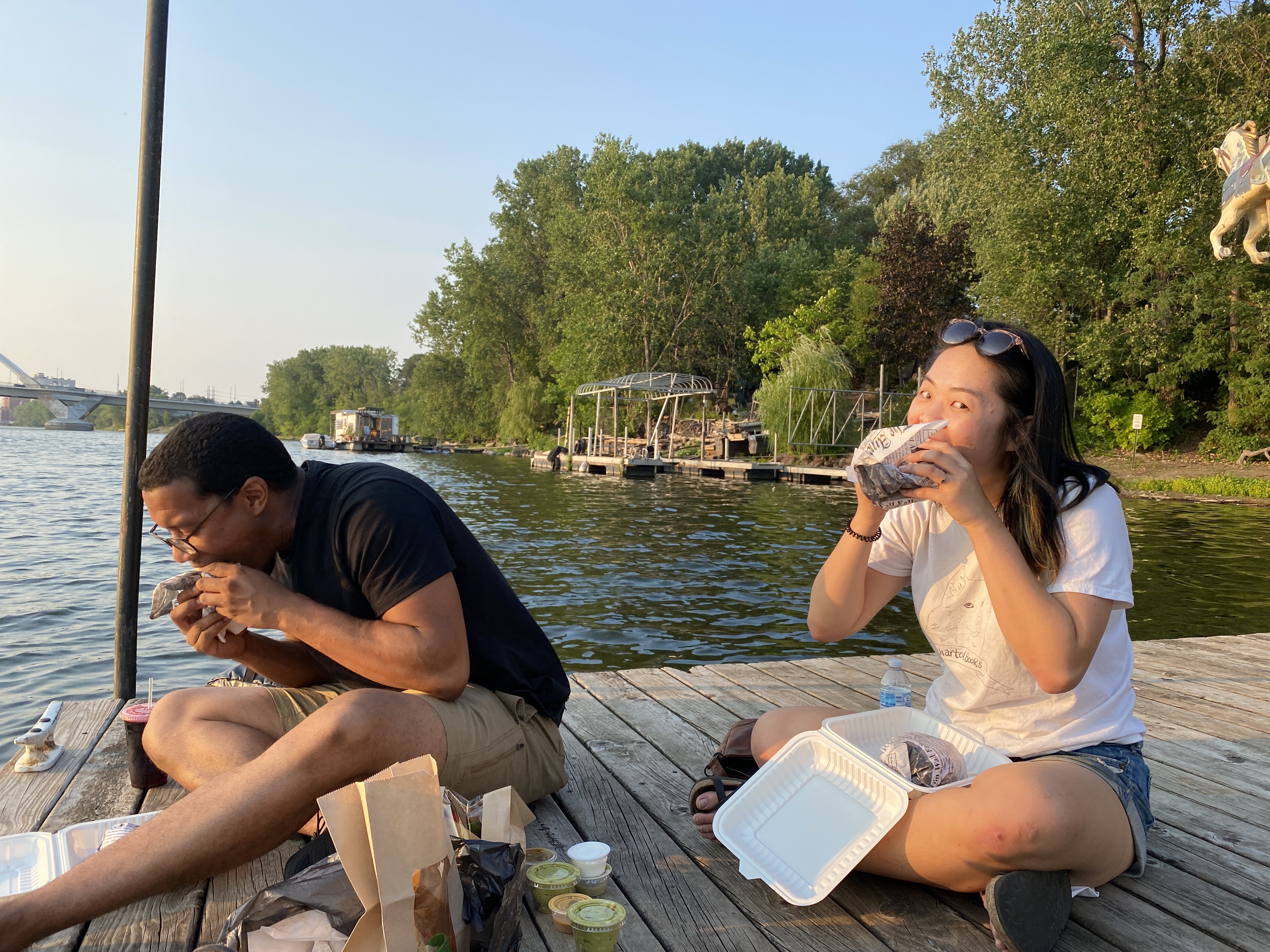
Confluence crew enjoying tortas by the river. Making plans and excited to introduce everyone to the AMMU on Monday.
Mon, Jul. 26, 2021 ⁄ 4:00–9:00pm
Critical Downtime – Workshops and Printmaking – Conversation w/ Marc Fischer, Kenneth Bailey, Laura Baldwin, and Members of Confluence Studio
An Introduction to AMMU and Print Workshop: 4pm
Pop-Up Exhibit: Legal Concealers: 4pm – 9pm
Marc Fisher in Conversation w/ Sam Gould & Laura Baldwin: 5:30pm
Kenneth Bailey in Conversation w/ Sam Gould: 7:30pm
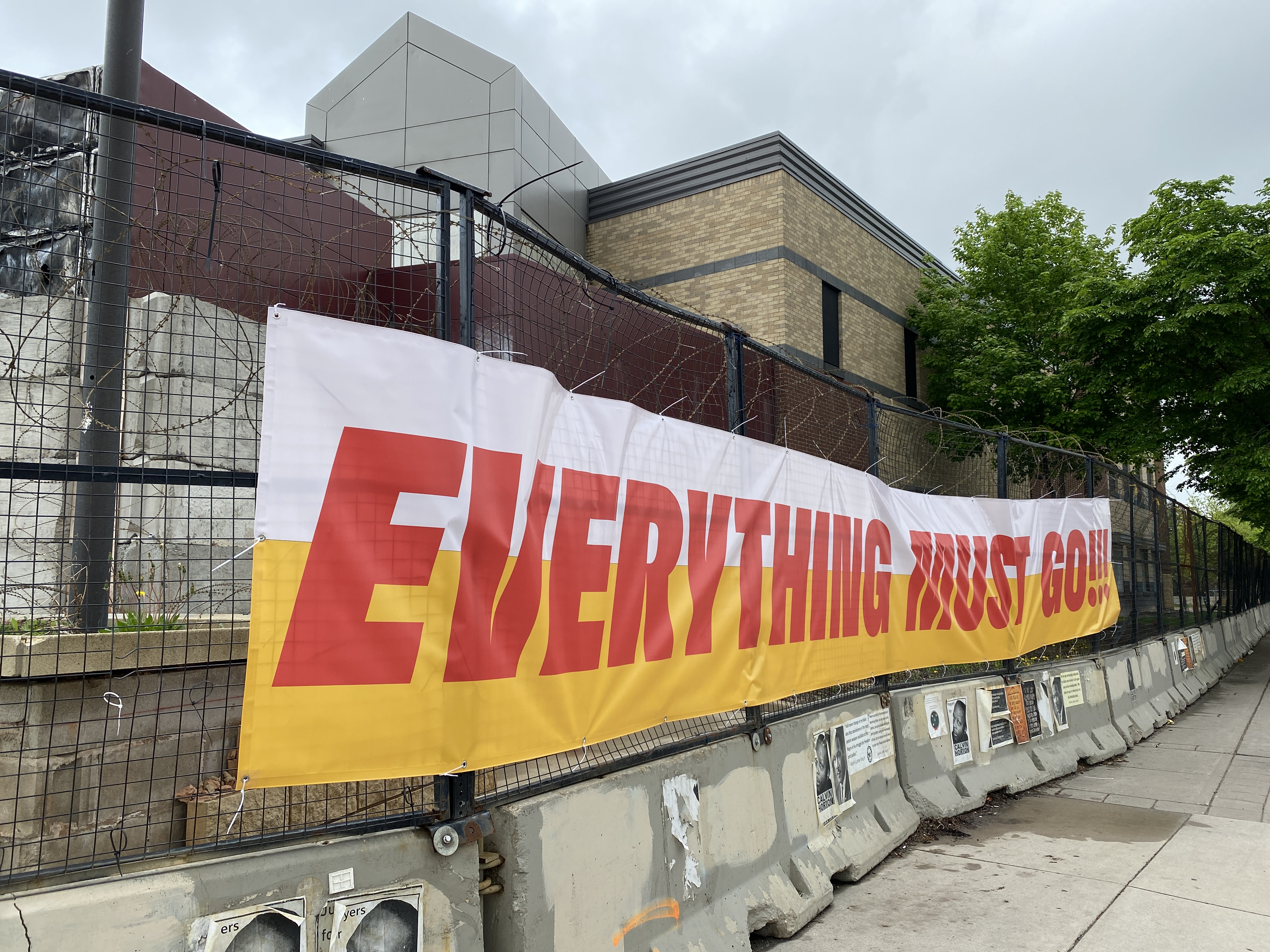
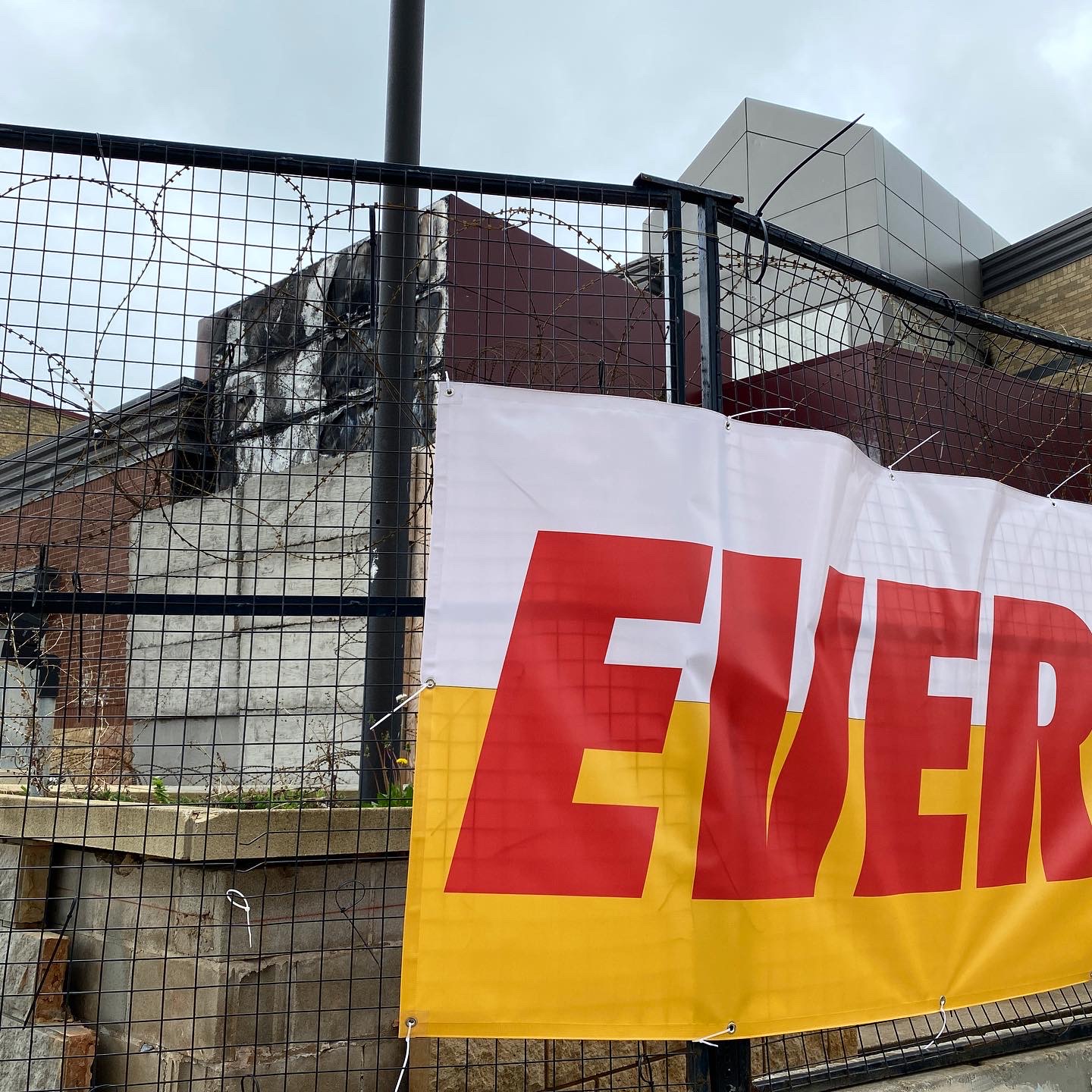
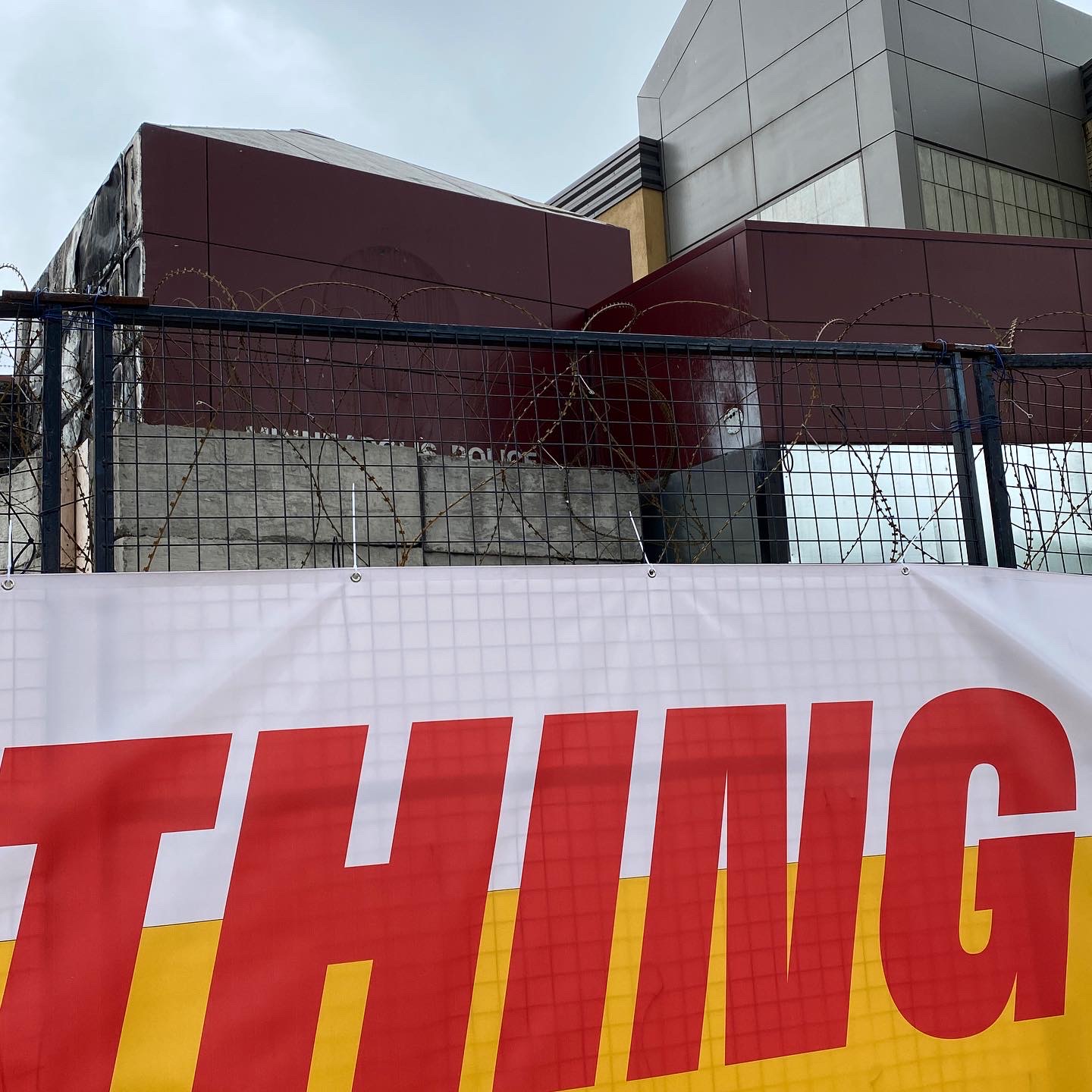
Defund the Police? Refund the People!!!
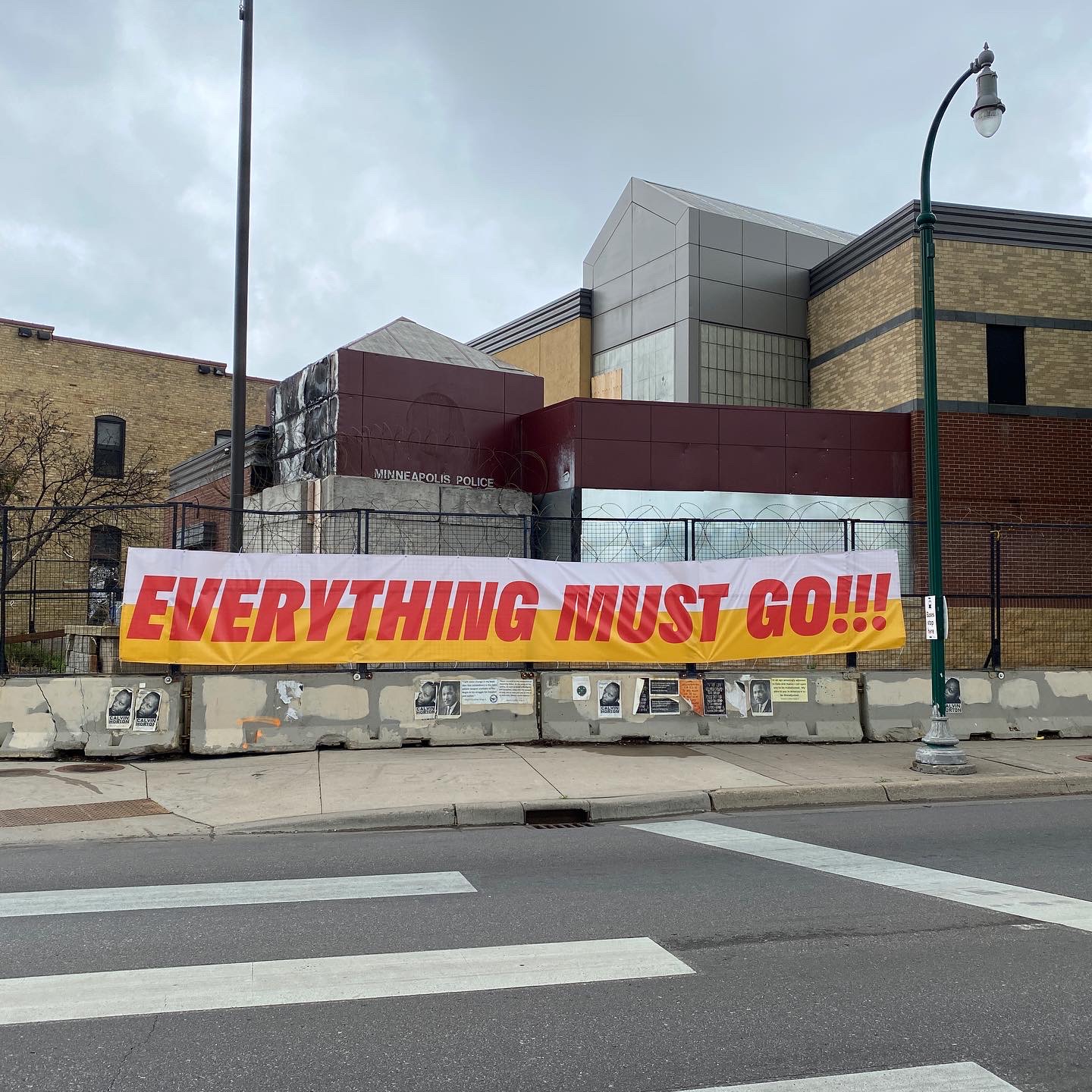
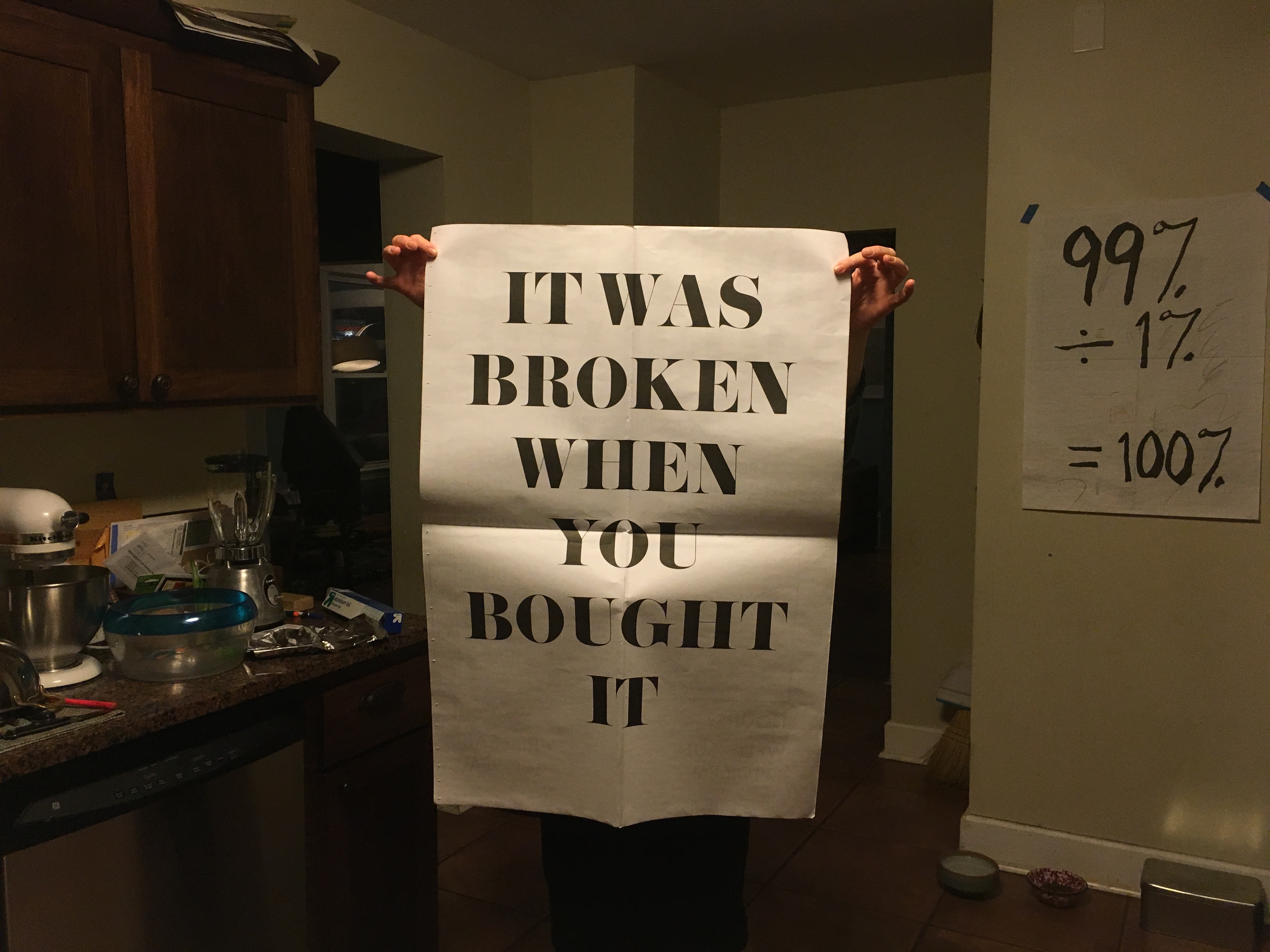
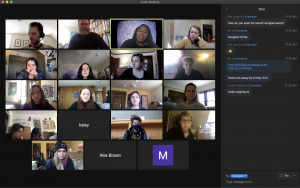
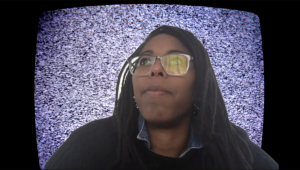
Deep thoughts with amazing Confluence collaborator Jennifer Newsom during our second class workshop for Fate is Kind.
Fri, Feb. 19, 2021 ⁄ 11:00am–12:15pm
Tomorrow is the Question: Listening as Action
Workshop #3 – Tomorrow is the Question: Listening as Action – Discussion begins @ 11am / Friday, February 19th
https://carleton.zoom.us/j/96423561102?pwd=cG16VUtLT0ZwMk1taUIwUHdXK25sQT09
Looking towards aspects of the African diasporic tradition and its tools, such as cooperative creation, improvisation, and deep listening, we are provided both inside and outside of the context of musicianship, guides that can play significant and important roles in our lives as active neighbors in community. These are social tools to carry with us day-to-day.
For this third workshop for the class Fate is Kind, we will be joined by artist, musician, and 9th Ward elder Douglas Ewart. Centering our focus on the techniques and histories of so-called jazz, “social music” as it was described by Miles Davis, or simply, as described by the Art Ensemble of Chicago, Great Black Music we will, in general, think through how this traditions qualities play a role for non-musicians to be more attentive neighbors. And in specific, we’ll listen to how these attitudes and qualities have played out in Douglas’ life and work, and what his experiences in cooperative creation can teach us moving forward in common.
In preparation for our visit to the Fate is Kind class by 9th Ward neighbor, artist and musician, Douglas Ewert, we are viewing this conversation between Roscoe Mitchell, Muhal Richards Abrams, Frederick Berry, and George Lewis.
As well, we are listening to the first hour of a series of radio programs originally broadcast in the late 60s on NYC’s WBAI, a long conversation between composers John Cage and Morton Feldman.

Social Margins: An Assembly in Text
As part of the Mt. Analogue class Fate is Kind we are reading Michel de Certeau’s Walking in the City, an excerpt from his Critique of Everyday Life.
“Act so that there is no use in a centre. A wide action is not a width.”
– Gertrude Stein

Social Margins: An Assembly in Text
As part of the Mt. Analogue class Fate is Kind we are reading Action Around the Edges, an excerpt from curator and critic Douglas Crimp’s critical memoir, Before Picture. This essay, read in tandem with text from Situationist International, looks at the intersection between interventionist art practices, namely that of Gordon Matta Clark and his piece Days End – a structural intervention of a derelict warehouse pier on NYC’s Hudson River – and the historical legacy and politics surrounding the gay cruising scene of the same era around the Hudson piers.

Social Margins: An Assembly in Text
As part of the Mt. Analogue class Fate is Kind we are reading excerpts from the Situationist International Reader.
Sun, Feb. 21, 2021 ⁄ 6:00–7:30pm
Mt. Analogue Discussions #2 w/ Davu Seru & Patrick Shiroishi
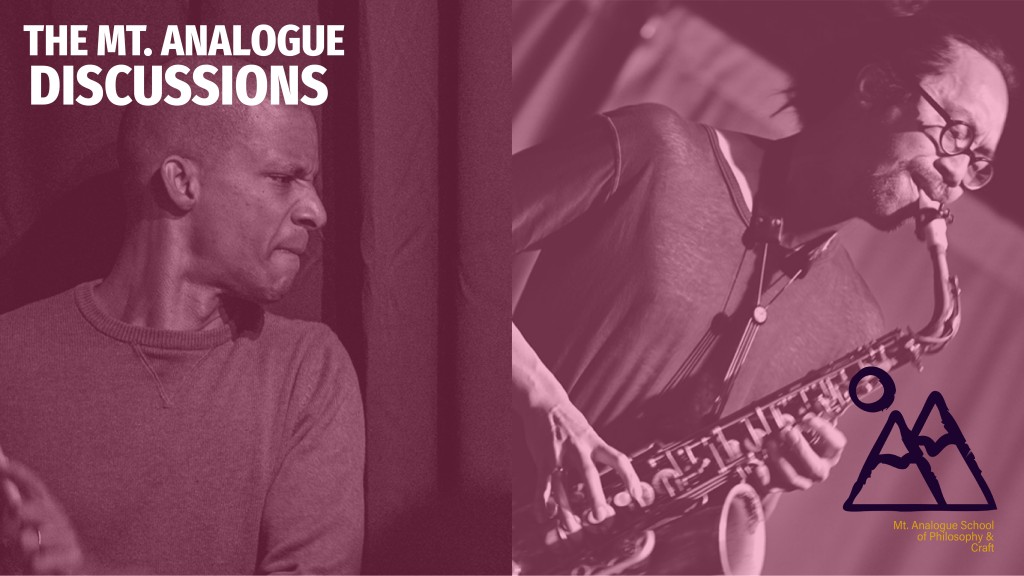
Sound and Self within the Social Landscape: Davu Seru & Patrick Shiroishi in Discussion
WHEN: Sunday, February 21 at 6:00 PM (US Central Time)
WHERE: via Zoom https://carleton.zoom.us/j/93952480199?pwd=U0svZHB1Rkd4VkdnU1VnT1VESmVCZz09
Patrick Shiroishi and Davu Seru, mid and west coast stalwarts of expanded composition, have each in the last few years composed pieces that speak to the power and social necessity embedded in the history of improvisation, “social music,” and the continued role that abstract sound plays in our understanding of the spaces between us. Be those spaces the distance between us, or the distance between ourselves and the realization of our best selves.
In 2018 Seru premiered Dead King Mother, a piece inspired by the oft-told family tale of his Uncle Clarence and his desperate actions following the assassination of Dr. Martin Luther King Jr. In early 2020 Shiroishi released Descension, an album of extended solo saxophone inspired by his family’s history in American concentration camps during WWII.
For this second session in the Mt. Analogue Discussion series, Seru and Shiroishi will delve into these two works, the intersection of familial and collective historical trauma, the systems and impulses that guide and manipulate them, and how they each utilize the tools of sound and voicing in abstraction as a means of expression and communion with intersecting histories.
About Davu Seru
Davu is an improvising musician and composer. He’s worked with numerous improvising musicians and composers throughout the United States and France and is bandleader for the ensembles Motherless Dollar and No Territory Band. For the year 2017-2018 he served as the first-ever composer-in-residence at Studio Z in Saint Paul. He’s curated concert series for over the past 20 years and has received awards from McKnight Foundation (2020 Composer Fellowship), Jerome Foundation (2017-18 Composer/Sound Artist Fellow), American Composers Forum (Minnesota Emerging Composer Award), the Metropolitan Regional Arts Council (Next Step Fund) and has received commissions from the Zeitgeist Ensemble and Walker Art Center. In addition, Davu is a published author and is a visiting instructor in the Department of English at Hamline University.
He lives in Saint Paul, MN, with his partner Emily and son August.
About Patrick Shiroishi
Patrick Shiroishi is a Japanese-American multi-instrumentalist & composer based in Los Angeles.
Tue, Feb. 16, 2021 ⁄ 5:00–6:30pm
Mt. Analogue Discussions #1 w/ Julia Bryan-Wilson
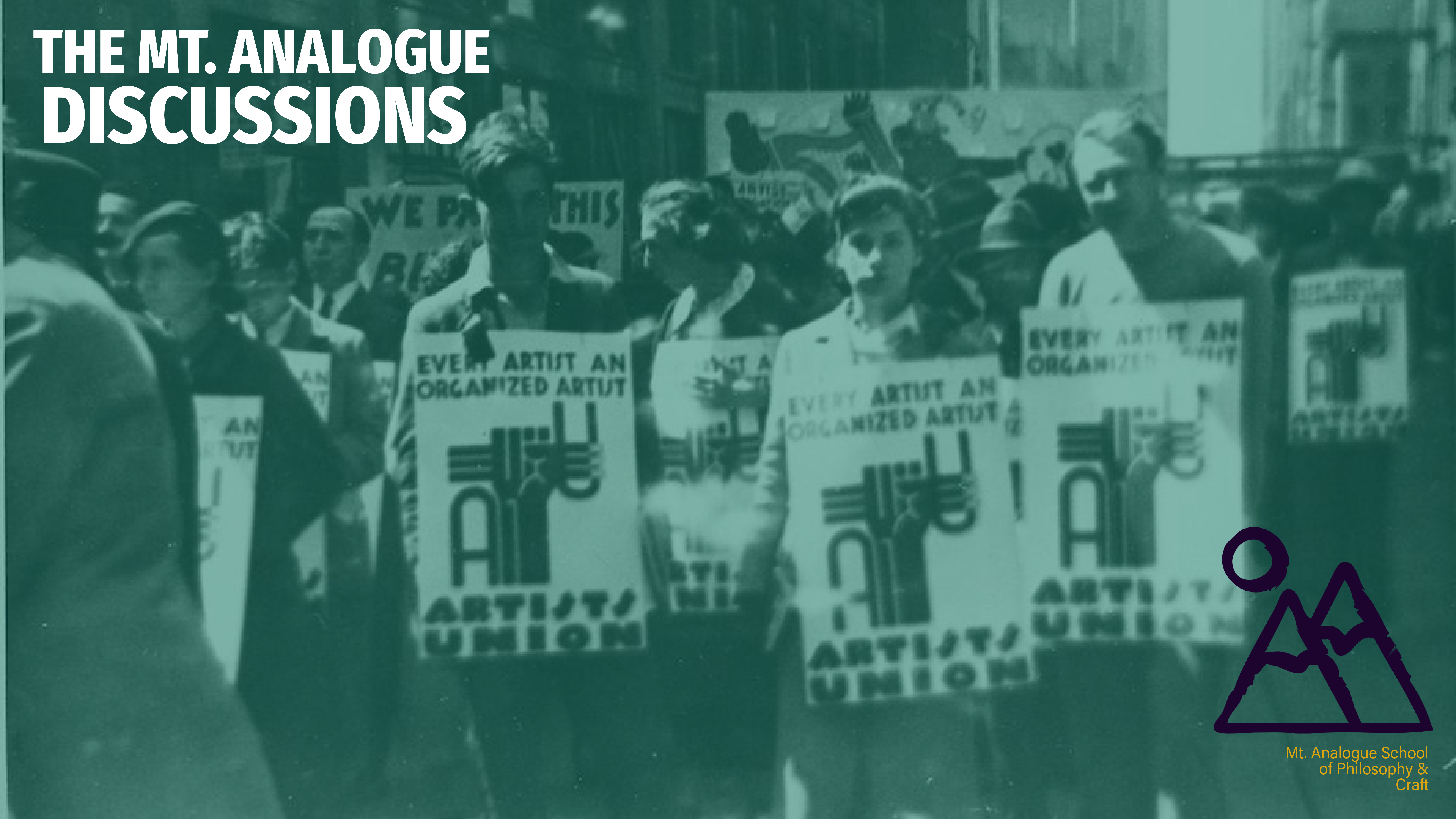
Art, Work, Craft, Resistance: Julia Bryan-Wilson in Discussion
WHEN: Tuesday, February 16 at 5:00 PM (US Central Time)
WHERE: via Zoom https://carleton.zoom.us/j/94805489346?pwd=d0hpdXhlWEpoOGdQSVZ0eXY4a3NPUT09
From her pre-academic days in radical feminist media networks to her focus on art and labor, craft and activism, and now the role of dance as a cultural form of grassroots resistance to repressive structures, Julia Bryan-Wilson has paid unique focus on how matters of everyday existence intertwine with deep rooted needs for cultural production as a social force for change. For this first session in the Mt. Analogue Discussions, Confluence Studio’s on-going series of conversations with artists, academics, activists, and global thinkers, we are proud to collaborate with the Art Dept. of Carleton College to host a discussion with Bryan-Wilson about how she sees her role as an art historian who works across difference and geographies and how she sees her work as a scholar as co-extensive with her work as an activist. Through this personal frame we hope the discussion will provide space to reflect more broadly on both the state of artistic production today as well as the role that the academy could play in furthering the cause of equity and equality.
About Julia Bryan-Wilson
Julia Bryan-Wilson is Doris and Clarence Maro Professor of Modern and Contemporary Art at the University of California at Berkeley, where she also directs the university’s Art Research Center. Her research interests include theories of artistic labor, feminist and queer theory, critical race theory, performance and dance, production/fabrication, craft histories, photography, video, visual culture of the nuclear age, and collaborative practices. She is the author of Art Workers: Radical Practice in the Vietnam War Era (University of California, 2009); Art in the Making: Artists and Their Materials from the Studio to Crowdsourcing (with Glenn Adamson, Thames & Hudson, 2016); and Fray: Art and Textile Politics (University of Chicago, 2017). She is the editor of OCTOBER Files: Robert Morris (MIT Press, 2013), and co-editor of three journal special issues (“Amateurism,” Third Text, 2020; “Visual Activism,” Journal of Visual Culture, 2016; and “Time Zones: Durational Art in its Contexts,” Representations, 2016).
Bryan–Wilson is an adjunct curator at the Museu de Arte de São Paulo, where in 2019 she co-curated the exhibit Women’s Histories: Artists before 1900; in 2020 at MASP she organized Histórias da Dança/Histories of Dance. With Andrea Andersson, she curated Cecilia Vicuña: About to Happen, which opened at the Contemporary Arts Center New Orleans in 2017 and traveled to the Berkeley Art Museum, the Henry Art Gallery, the ICA Philadelphia, and MOCA North Miami. She is currently writing a book about Louise Nevelson.
